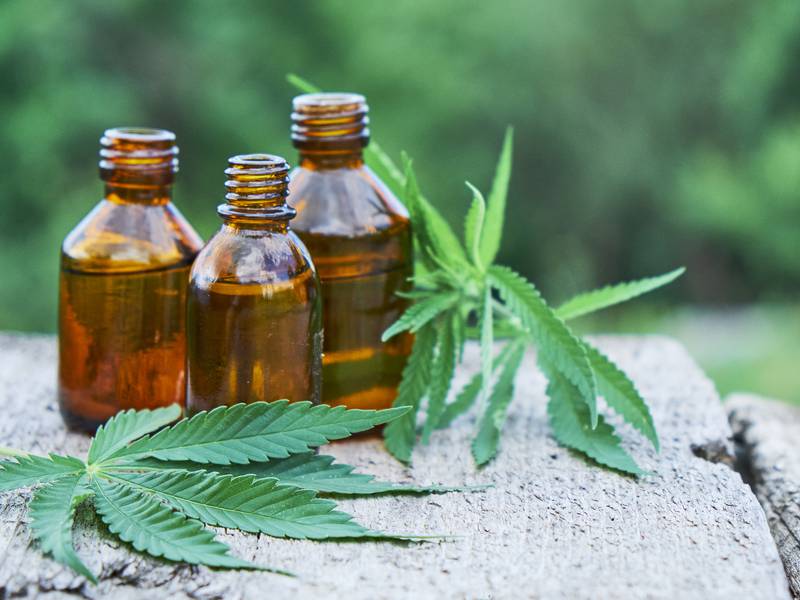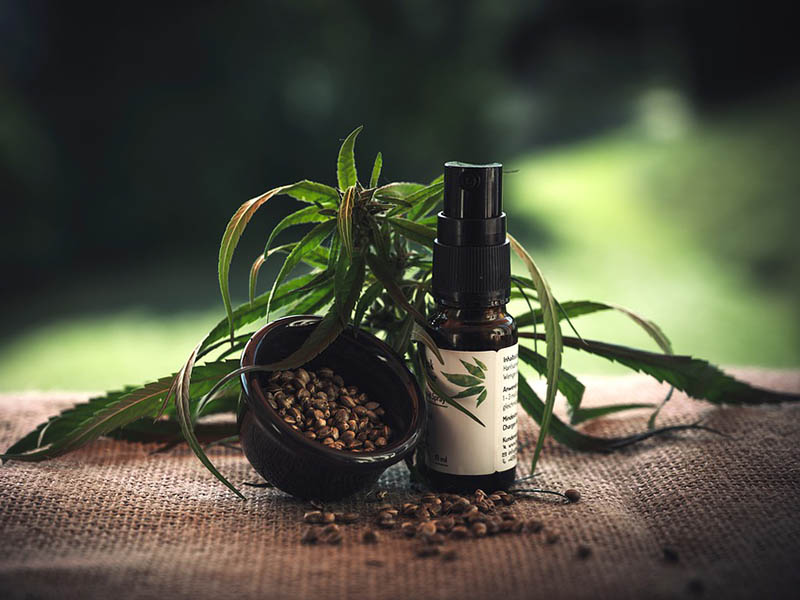The famous CBD, or Cannabidiol, is one of the best known components of herbs. While THC still ranks first in popularity due to its cheap psychoactive properties, CBD has been gaining more and more presence in the media, doctors’ offices, laboratories, and the debate about the plant. This is due to the medicinal value of the cannabinoid, which has become known to aid in the treatment of epilepsy and other diseases.
In this article we will discuss the following questions: What is CBD used for? How can it be used? What is the difference between CBD alone and in its natural form in plant? After all, these are answers that not only medical patients seek, but all users and growers who also want to make the most of the medicinal effects of the plant and CBD.
What is CBD?
As we mentioned above, CBD is one of the compounds in herbs, but since there are so many of them, it has not become famous for nothing. You see, besides being one of the most commonly found compounds along with THC, Cannabidiol has other functions. CBD and THC interact with our bodies in various ways through the endocannabinoid system, which has a regulatory role. It is because of these broad cannabinoid functions that CBD, an extremely potent compound in its medicinal form, can help treat so many diseases. So many that nowadays it is almost impossible to count.
The effects of the much talked about Cannabidiol
CBD is a cannabinoid which, like THC, binds to cannabinoid receptors spread throughout the human body, known as CB1 and CB2. Unlike THC, however, Cannabidiol is not psychoactive, meaning it does not cause the famous “cheapness.” CBD counteracts some of the effects of THC by interacting directly with it. Patients report that with THC used alone, such as in the form of dronabinol (synthetic THC), the psychoactive effects are very strong, and can cause paranoia, dizziness, and other unpleasant effects.
In conjunction with cannabidiol, however, these negative effects of THC are softened, while its medicinal effects remain the same or increase. Other components also interact in this way. CBD, however, is most abundant, second only to THC in most strains of the plant.

CBD has a sedative effect. Plants with a high content tend to cause more sleep and relaxation when consumed. This effect is also accentuated depending on how the extract is prepared. Understand better how decarboxylation can be performed to emphasize the role of CBD in the extract.
CBD as a neuroprotective agent
CBD became known for its association with the treatment of epilepsy. When several cases of children being treated with herbal extracts started appearing in 2014, more and more the word CBD was used in the media. In an attempt to disentangle cannabidiol, the component was mentioned dozens of times as if it were the only cannabinoid that could treat diseases.
In fact, CBD has been studied as a potential neuroprotectant. The component appears to protect nerve cells from overexciting – a process that occurs naturally in healthy people, but in excess in epilepsy, causing the characteristic seizures and spasms. Other cannabinoids, however – such as THC itself – also have a neuroprotective effect. It is possible that these components act together with cannabidiol to treat epilepsy.
Isolated CBD is being tested as a treatment for difficult-to-treat epilepsy, but there is still not enough evidence for its effectiveness, as well as the plant in its natural form. Reports from hundreds of families, however, show impressive results. In all these cases it was not used alone, but in conjunction with other components.
CBD’s anti-inflammatory power
CBD appears to have anti-inflammatory properties, showing potential for the treatment of various inflammatory diseases such as rheumatoid arthritis, multiple sclerosis, Crohn’s disease, type 1 diabetes, and many others. This effect has been observed both with Cannabidiol alone and in its natural form. A study comparing the efficacy of the two forms, however, concluded that the CBD-rich strain is a superior anti-inflammatory than CBD alone.
More studies are needed to determine the efficacy of cannabidiol as an anti-inflammatory.
If you want to find great information, visit the top ecowatch cbd to learn more.





